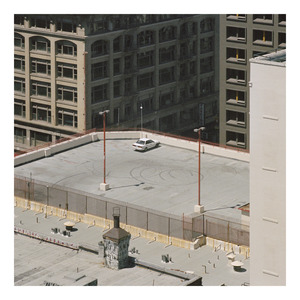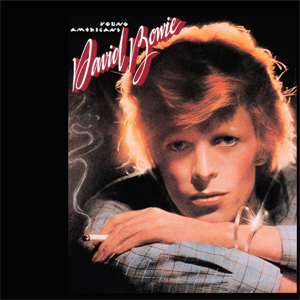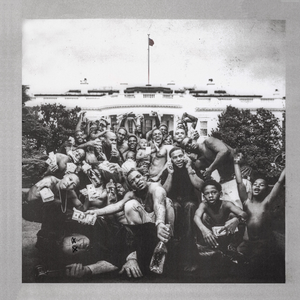
Arctic Monkey's last album, 2018's Tranquillity Base Hotel + Casino, proved to be quite divisive - discarding AM's pop rock riffs and coked up bravado that blew them up into global superstars in favour of a tongue-in-cheek 70's-esque lounge pop sound and Alex Turner rambling about about a hotel on the moon. I, for one, loved it. AM's swaggering cockiness always felt a little one note to me, and the shift to taking themselves a little less seriously (once again) made for a much more interesting listen. It also helps that the songs are actually really well written and there is a fair amount to dig into with the themes and subtext of the record beyond Alex pretending to be some washed up rockstar singing in a lobby of a fictional moon resort. The Car, on the surface, appears to be following in TBH+C's footsteps, forgoing any semblance to indie rock for a 70's inspired baroque pop and soul record. But when digging a little deeper, it feels a lot closer to AM than TBH+C, and not in a good way.
What I mean by that is that it feels much more earnest and self-serious, and somewhat of a pastiche (or even a novelty) of the genres it's mimicking. AM borrowed from 70's hard rock riffs and matched them with Alex's fairly generic 'rockstar' posturing - 'sex, drugs and rock'n'roll' and the like. The Car does the same thing, but replaces these elements with layers of lavish strings and pastiche funk guitar likes, and Alex's formless, lounge-y vocals sprawling over these tracks with little regard for metre or consistency. He did this a bit on TBH+C, but it was much more restrained there, and also fitted with the character he was playing on that album. However, when this album is clearly trying to be taken a lot more earnestly, it just comes of as a kind of bad vocal performance. In places, it feels like he is trying (and failing) to do his best Bowie impression, which made me associate the album with a phrase Bowie said to describe his foray into soul and funk - "plastic soul". Bowie used it as a reference to how he originally wasn't part of the soul scene and he was a plastic imitation of it (I disagree - and I'll get back to the Bowie reviews I promise); but that descriptor seems apt for The Car. While as lavish and ornate as it sounds, it just feels plastic-y and uncanny.
The record opens with by far its best track, the lead single There'd Better Be A Mirrorball. It's the only song I wholeheartedly love on the album and I think best represents what the band is going for on here. It is a heartfelt and sentimental break up ballad set to swooning and cinematic strings and a warbling synth line. The lyrics are some of the sweetest and most grounded Alex has ever written, and the track builds such an atmosphere to accompany them. It certainly feels like it could accompany a movie scene of someone walking back to their car in the rain post-breakup. This atmosphere is unfortunately killed right away by the following track (and first one they teased live) I Ain't Quite Where I Think I Am and its tacky 'wah-wah' funk lead guitar part. The song just feels like such a hodgepodge of ideas that never really connect together. The lyrics are disconnected and all over the place, supposedly reflecting a disconnect Alex feels between himself and the environments he finds himself in, but there's too many obtuse references and metaphors masking any sort of depth in the lyrics. I do quite like the string instrumentation that comes in for the chorus, but the cheesy funk guitar comes straight back in for the second verse and takes me straight out of the song. The song feels like a half formed b-side, not one of the big singles from the record.
Sculptures Of Anything Goes has drawn comparisons to AM, which I can certainly see as the mix is mainly comprised of Alex's vocals set against a super-heavy Moog synth bass part - similarly to AM's bass heavy mixes. Once again there are parts of the song I do like; the focus on the synth bass gives the track a lot of tension, and the contrast between it and the strings in the back half of the song is some of the most dynamic use of the orchestra on the album. However, similarly to I Ain't Quite Where I Think I Am, the themes of the song are buried in obtuse references that take away from the emotional resonance; and Alex's performance frankly doesn't do it any favours - he just sounds so underwhelming when set against the drama of music. Jet Skis On A Moat is perhaps my least favourite on the record, with Alex cringily crooning over returning 'wah-wah' guitars. The whole thing feels like the edgeless smooth.fm soul designed to appeal to the type of boomer that can't stand any passion or fire in their music. It really rubs me the wrong way. This leads into the big centrepiece of the record, Body Paint. The track does have its moments, but much like many of the moments on the first half, aimlessly meanders through its disparate sections not really building to a greater whole. It also may be Alex's weakest performance on the record, where the inflections are the most egregious and his voice in general coming across strained and raspy.
The second half of the record is more consistent, sonically and quality wise. The album settles into a more run of the mill vintage baroque pop sound, and Alex's delivery becomes more restrained and professional. However, I will say while there's not much I outright dislike about these songs, they also don't have that much unique going for them to make them stand out. They don't even sound particularly 'Arctic Monkeys' - they're just missing a bit of the snark and tonge-in-cheek fun. There are a couple of songs on the back half that I do enjoy, being the title track and Hello You. The Car is nostalgic look back at childhood memories related to the family vehicle, and features some lush jangly acoustic guitar and melancholic piano. The track feels quite tense, and is so close to being really good - I just wish it had more of a fully formed chorus or climax to pay off that tension. Hello You is apparently the only track that survived the band's first attempt in the studio back in 2019, and certainly feels the closest to TBH+C with it's oddball stream of consciences lyrics and more playful, quirky energy. The song is one of the most dynamic on the record, with a catchy chorus and a somewhat bouncy interplay between the lead guitar and string parts on the song.
It's a shame that following Hello You, the album limps out with two of its least notable and most underwhelming tunes. Mr Schwartz is a fine, bog standard bossa nova cut, and the closer Perfect Sense feels like it's attempting to be some semblance of a big cinematic closer, but then chickens out before it ever gets there, and then the album just kind of ends. My first listen to the record was while doing some jobs and I wasn't looking at the tracklist and I genuinely thought "Oh is it over?.." when the track finished.
The Car isn't an awful album, and it's not like I don't think it's a sound that the band can't do. I loved TBH+C and Alex's two albums with The Last Shadow Puppets that play in a lot of similar soundscapes. It's just I feel that these are easily the weakest crop of songs the band has come out with so far, and some poor aesthetical choices particularly in the first half make it a kind of drab and tiresome listen. As much as I personally have problems with AM, at least that album succeeds in having a load of fun catchy hooks to draw you in, so I can safely say that this is my least favourite record from the band thus far. (I'd still take it over the boring, commercial, 'safe for Radio 2' garbage that a lot of the bands from this generation are making nowadays).
Top Tracks: There'd Better Be A Mirrorball, The Car, Hello You
5/10








